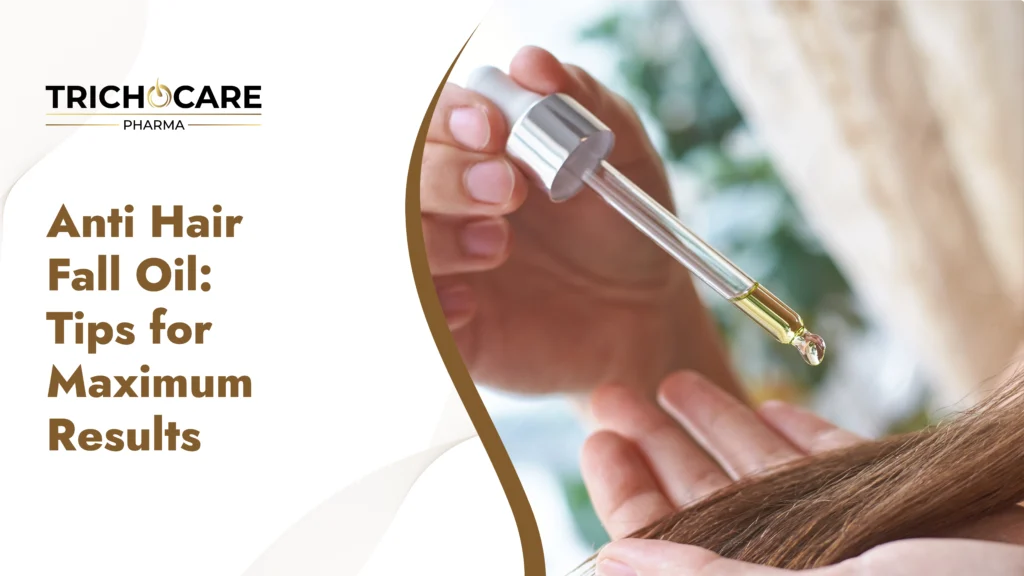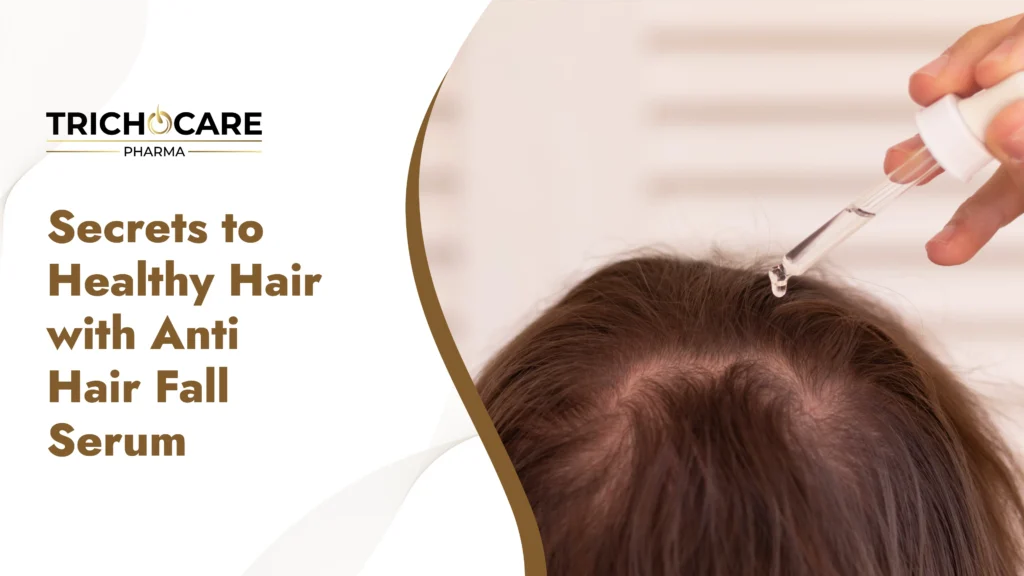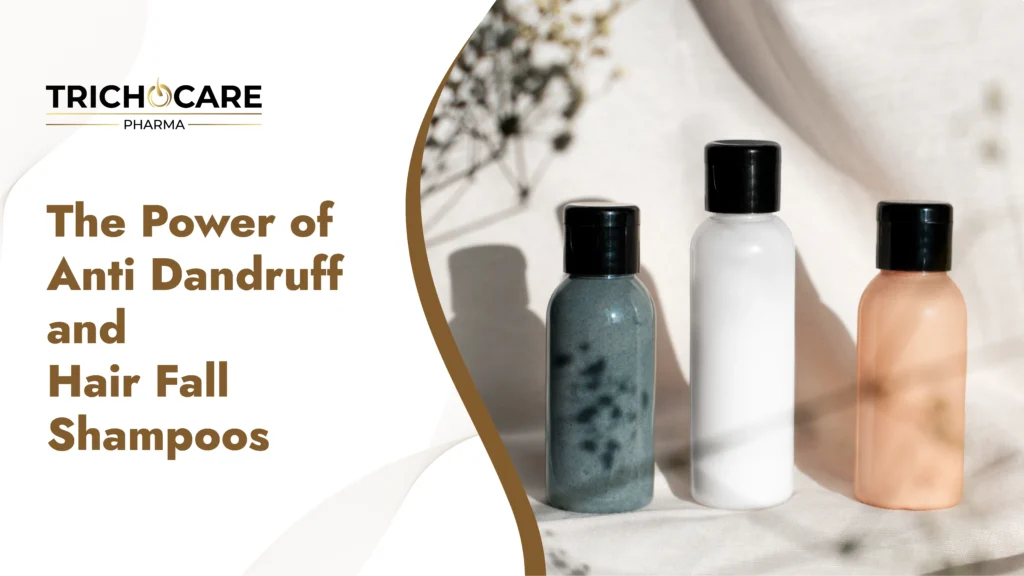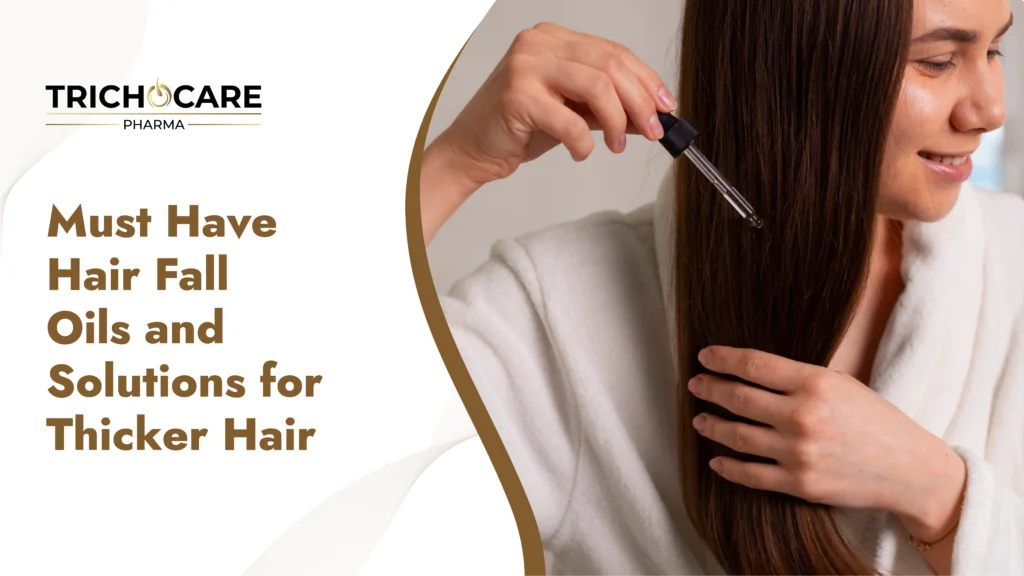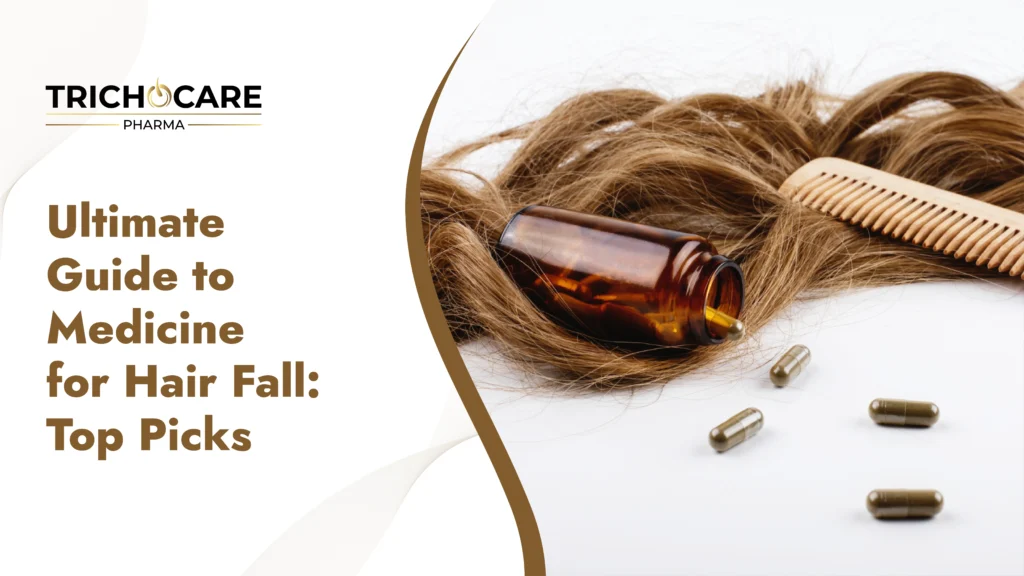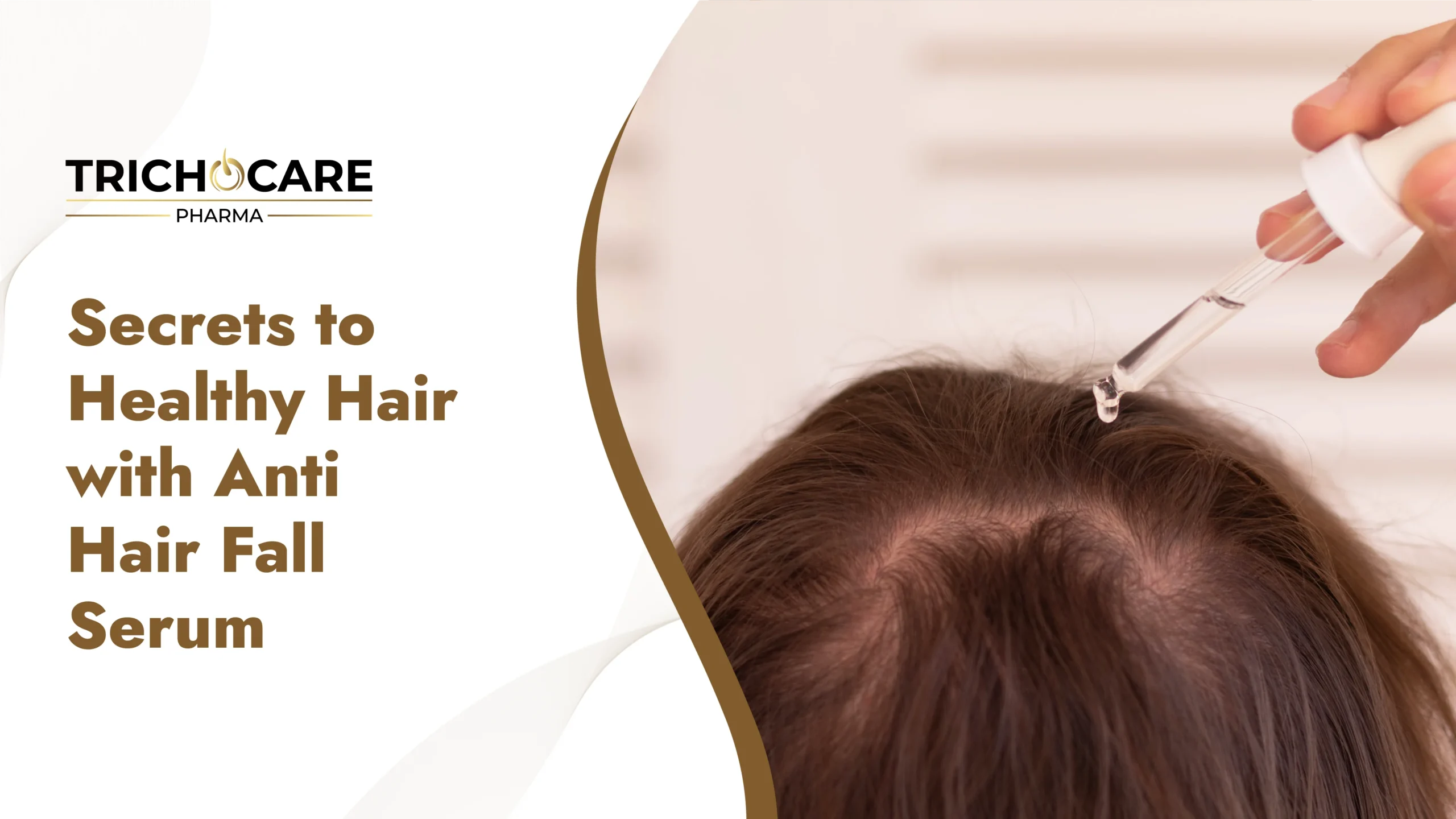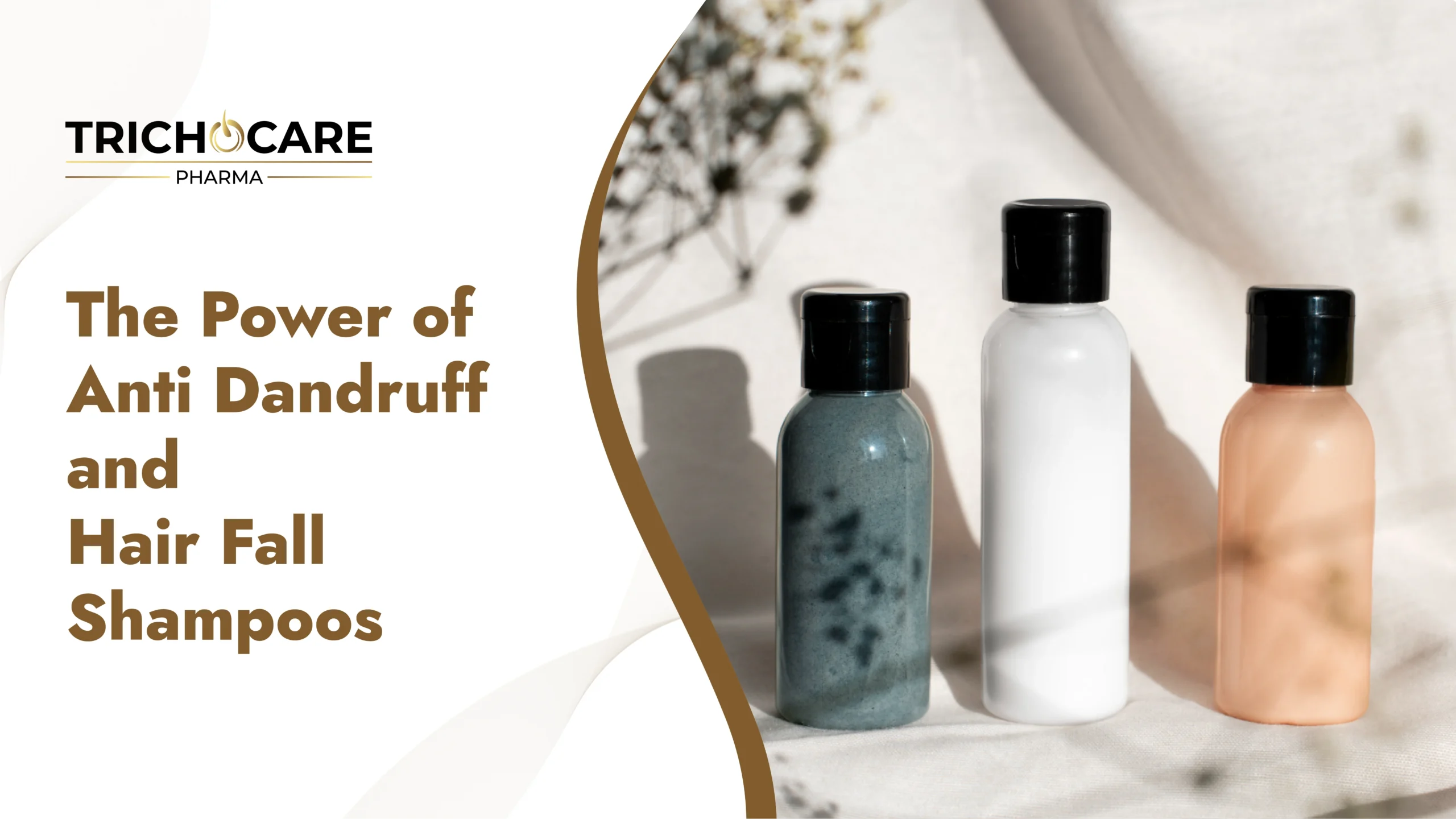Introduction
hair fall control shampoos: Hair loss is distressing for anyone because it breaks one’s confidence and overall well-being. Though hair fall is a common occurrence, understanding its causes and probing for the right remedy is necessary. Hair fall control shampoos can be part of your grooming routine if used correctly. In the blog below, I’ll walk you through the nitty-gritty details of these shampoos-from their primary ingredients to usage-and give you some useful tips on how you could build a well-rounded hair care routine.
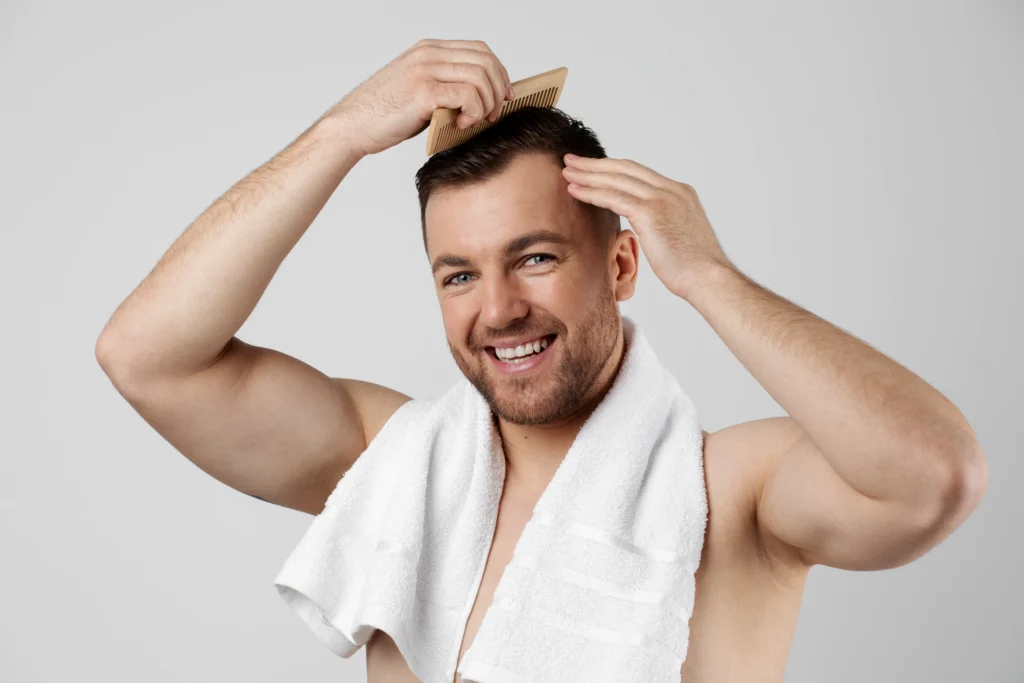
What Causes Hair Loss
- Genetics and Heredity
Androgenetic alopecia, also called pattern baldness, affects up to 50 percent of men and women. This hereditary condition tends to follow a predictable pattern and may begin as early as your 20s.
- Hormonal Imbalances
Hormonal fluctuations, more especially a change in the level of DHT (dihydrotestosterone) can trigger hair loss cycles. Other medical causes involve pregnancy, menopause, or thyroid function disorder in women.
- Nutritional Deficiencies
Essential nutrients like:
- Iron: Assists in the formation of the red blood corpuscles, thus transporting oxygen to the hair follicles. Hair will become thin or will fall off if there is a lack of iron. Thus, adequate intake of iron will be pivotal in having strong, healthy hair growth.
- Biotin: Often referred to as Vitamin B7, biotin strengthens the structure of keratin in the hair. This would reduce breakage and prevent hair from falling off the head. Biotin also assists in the boost of thickness in hair and gives it its natural shine.
- Vitamin D: Vitamin D is associated with the hair cycle; it is helpful to produce new follicles of hair. The people who suffer from vitamin D deficiency have alopecia, so proper intake of vitamin D helps reduce hair fall.
- Zinc: Protects the oil glands around hair follicles, so your hair grows healthy and does not get dry. Hair strands end up weakening or falling before their natural time if there is a zinc deficiency, making it one of the very important minerals that helps prevent overfall.
These are the most important nutrients for the hair. Its deficiency can bring frequent hair loss and slow growth.
- Stress and Lifestyle Factors
This involves chronic stress, bad sleeping habits, and a bad diet leading to telogen effluvium. It is a temporary condition that temporarily affects the hair growth cycle.
- Medical Conditions and Medications
Various health conditions and treatments, including:
- Autoimmune Diseases: In autoimmune conditions, such as alopecia areata, the immune system tends to attack hair follicles, and hair falls out in patches. In some other medical conditions, for example lupus or thyroid disease, similar reactions occur when the immune system responds to the cells that produce hair, leading to either temporary or permanent hair loss.
- Chemotherapy: Chemotherapy drugs are targeted to kill rapidly dividing cancer cells. However they also have an effect on all the other rapidly growing cells, even those that occur in the follicles of hair. This means that chemotherapy often results in rapid and diffuse loss of hair, typically in a matter of weeks of commencement of therapy. Hair Loss resulting from chemotherapy is usually reversible, with hair returning once treatment is halted.
- Certain medications can cause temporary or permanent hair loss: Some of the medications used for antihypertensives, depressants, and hormonal conditions could affect the hair growth cycle. This causes temporary hair loss due to conditions called telogen effluvium or in extreme cases leads to permanent thinning of hair as hair follicles could shrink or weaken because of these conditions. Once the medications are stopped, hair tends to grow back, and this can take a very long time.
Effective Remedies for Hair Loss
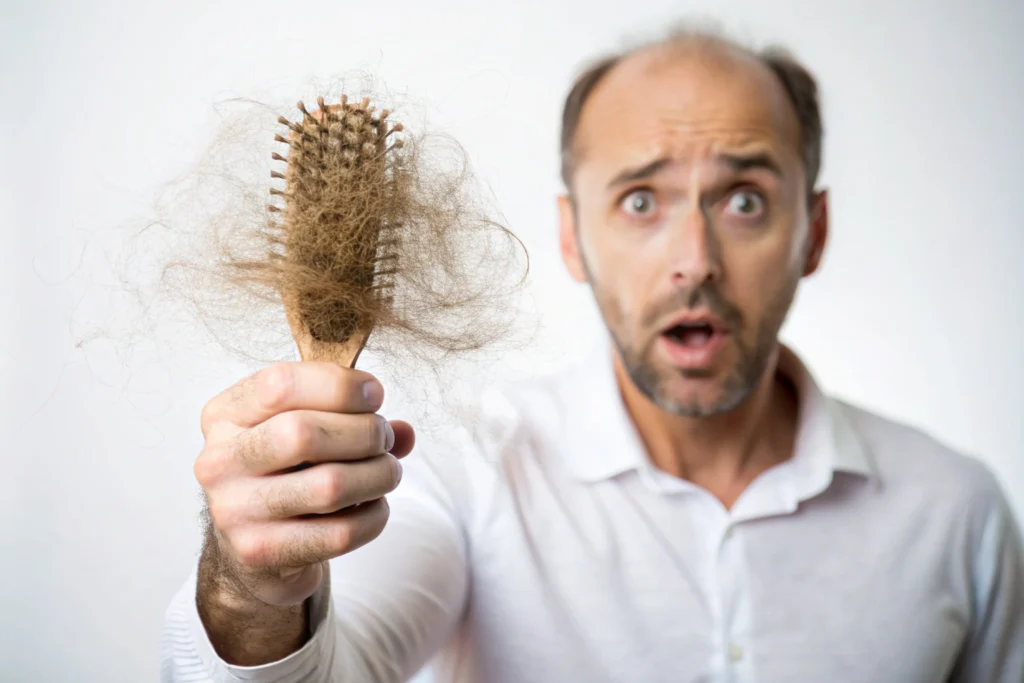
1. Adopt a Balanced Diet
Include these hair-healthy foods in your diet:
- Eggs (protein and biotin): The egg is an excellent source of protein, a constituent material for hair strength and build since hair is almost all made of protein. Furthermore, biotin, also named Vitamin B7, stimulates the formation of keratin, making hair stronger, and it even helps prevent hair loss. Biotin deficiency has been associated with hair loss and brittleness.
- Fatty fish (omega-3s): They are full of omega-3 fatty acids which contain anti-inflammatory properties preventing inflammation at the hair follicle level. Secondly, they keep the scalp humid and reduce dryness, facilitating hair growth due to healthy follicles.
- Nuts and seeds (vitamin E): Nuts and seeds, more specifically almonds, sunflower seeds, and walnuts, are full of vitamin E, an antioxidant that protects hair from environmental attacks and improves the scalp’s blood circulation, keeping the hair growth cycle healthy and strong and shining.
- Leafy greens (iron and vitamins): Provide iron which increases blood flow towards your scalp, thus making available oxygen to hair roots; vitamins A and C in greens also promote the production of sebum, which is the natural oil from the scalp that will condition your hair, and keep your hair shiny, not dry or breaking.
- Sweet potatoes (beta-carotene): Beta-carotene in sweet potatoes is converted into vitamin A once ingested. Vitamin A promotes cell growth, including the cells around hair follicles. Vitamin A also improves the production of sebum that moisturizes hair, keeping it less prone to breakage. Such hair will be stronger and healthier, leading to steady growth.
2. Use Natural Oils
Natural oils proven to promote hair growth:
- Rosemary oil (clinically proven to match minoxidil): This oil is clinically proven to work as well as minoxidil in stimulating hair growth, especially in individuals who suffer with androgenetic alopecia. It helps increase blood circulation around the scalp, which aids in bringing nutrients to hair follicles for hair growth and stimulates these areas for hair growth. Moreover, it is an anti-inflammatory and antioxidant with contributions toward scalp health.
- Castor oil (rich in ricinoleic acid): Castor oil is full of ricinoleic acid, the vital omega-9 fatty acid that carries anti-inflammatory properties and feeds the follicles. The mode of this fatty acid is to improve the blood circulation of the scalp, which will thereby make it thicker through increased health in the hair cycle. On top of this, castor oil is a humectant; since it retains moisture within the hair, breakage decreases, and thereby contributes to holding onto hair.
- Coconut oil (prevents protein loss): It makes it possible to be penetrated down the hair shaft and thus prevent protein loss and, above all, strengthen hair from inside. As it prevents losing protein, it prevents breakage, dryness, or split ends. Coconut oil also comprises antimicrobial properties that keep the scalp healthy; such conditions reduce the chances of dandruff, which always brings about a disruption in hair growth.
- Peppermint oil (stimulates circulation): When applied to the scalp, peppermint oil causes a cooling sensation, which increases blood flow, thus helping in enhanced nutrient delivery to the hair follicle. Enhanced circulation can stimulate the growth phase of the hair cycle, hence making hair grow faster and stronger. Additionally, peppermint oil is antimicrobial, thus supporting a clean and healthy scalp.
3. Practice Scalp Massage
Constant scalp massage improves blood supply and nutrients to the hair follicle. Massage your scalp daily for 5-10 minutes using circular motions.
4. Reduce Stress Levels
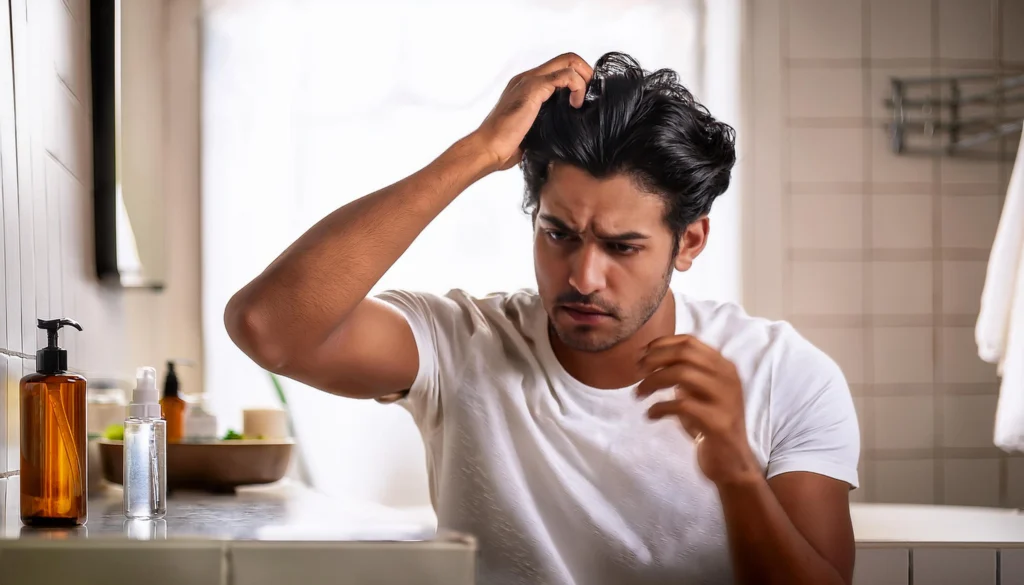
Implement stress-reduction techniques:
- Regular exercise: Regular exercise helps improve blood flow around the entire body; it improves blood circulation in your scalp. Better flow will mean a better intake of oxygen and nutrients by hair follicles, which further grow healthier hair. Exercise also reduces body stress, which is mostly the reason for hair loss, and upholds the stability of hormones in the body, which enables natural growth of hair.
- Meditation: Stress might lead to the disruption of hair growth cycles, possibly resulting in conditions like telogen effluvium. Lowering the stress levels created by meditation creates a peaceful mental state. Meditation reduces the presence of stress hormones such as cortisol, and helps improve blood circulation to the scalp, thus promoting healthier hair growth.
- Adequate sleep (7-9 hours): There must be adequate sleep time of 7-9 hours. This is because sleep aids in body repair concerning what needs to be done for regeneration of hair; therefore, sleep balances hormones and boosts cellular regeneration, which ensures proper functioning of hair follicles. Poor sleep causes disturbances to the natural processes of the body, and it increases levels of stress factors which may catalyze hair shedding and slows growth.
- Yoga or breathing exercises: Yoga and breathing exercises like pranayama boost oxygen supply to and around the scalp, thereby improving hair follicle health. Some of the yoga postures directly enhance blood flow to the scalp such as the headstand or downward dog. Furthermore, yoga prevents stress- related factors that reduce cortisol levels, the primary association with hair loss caused by stress.
5. Consider Medical Treatments
FDA-approved treatments include:
- Minoxidil (available over-the-counter): Minoxidil is a topical medication that works by prolonging the anagen phase of the hair follicles and, simultaneously, enhancing blood circulation to the scalp to enhance the timely supply of more oxygen and nutrients to the follicles. This is believed to facilitate hair growth and slows down the progression of hair loss. Minoxidil is a very effective treatment for androgenetic alopecia and pattern baldness and can be purchased over the counter.
- Finasteride (prescription required): Finasteride is a form of oral medication. It blocks the conversion of testosterone to dihydrotestosterone, or DHT, a hormone that has been linked to hair follicle shrinking and hair loss in those afflicted with androgenetic alopecia. When the amount of DHT is blocked by finasteride, additional hair loss may be arrested and hair growth in balding areas promoted because of male pattern baldness.
- PRP (Platelet-Rich Plasma) therapy: This is a treatment that requires drawing blood from the patient; this blood is then processed to concentrate the platelets. The plasma enriched with the platelets will then be injected into the scalp. Containing growth factors in the platelets, it stimulates the hair follicles, promotes cell regeneration, and thus causes new hair to grow. It has been helpful for hair growth density and thickness of hair. Such a treatment is administered on persons experiencing thinning hair. It may also cut across both men and women.
- Hair transplant surgery: Hair transplant surgery involves moving hair follicles from donor areas of the scalp with denser hair- usually the back or sides- to areas that have begun to thin or are balding. This permanently restores hair in targeted areas by transplanting healthy follicles that continue to grow naturally. There are two main techniques: Follicular Unit Extraction and Follicular Unit Transplantation, and each offers long-term hair regrowth solutions.
Understanding Hair Fall Control Shampoos
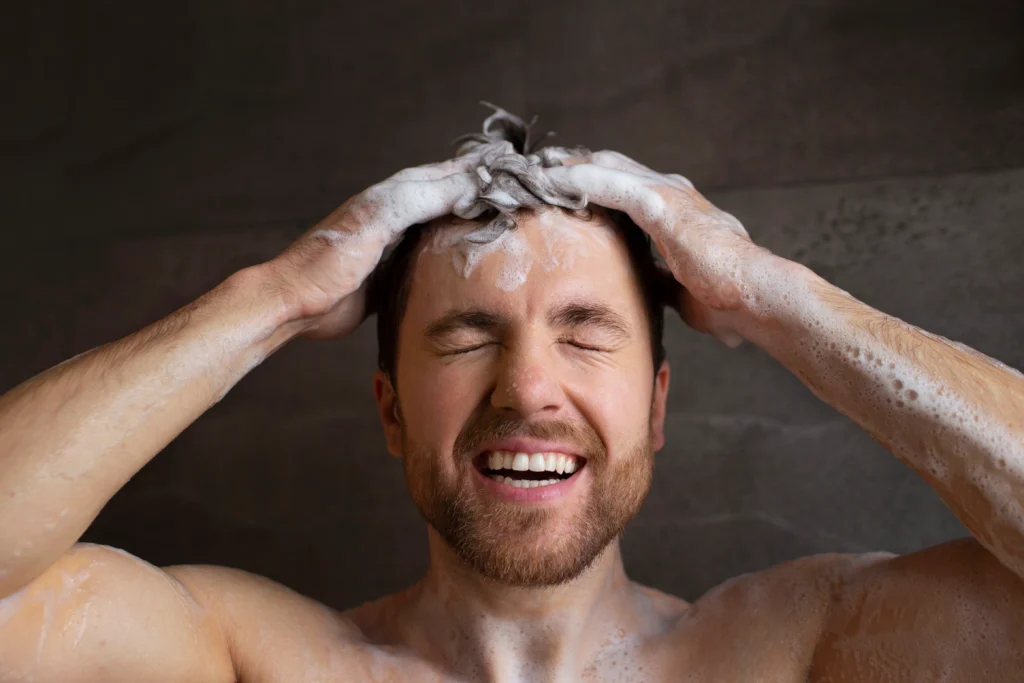
- Key Ingredients in Hair Fall Shampoos
Look for these effective ingredients:
- Ketoconazole (anti-DHT properties): Ketoconazole is anti-DHT, which further decreases DHT on the scalp, possibly preventing follicle shrinkage and hair loss, especially in the condition of androgenetic alopecia. It also lowers inflammation in the scalp; the scalp environment promotes healthy hair growth.
- Biotin (strengthens hair structure): Biotin is a vitamin that stimulates the production of keratin, which is the predominant protein in hair structure. Biotin strengthens the hair shaft, reducing breakages and makes the hair more voluminous and resistant to falling.
- Caffeine (stimulates follicles): Caffeine promotes blood flow in the scalp leading to a greater supply of nutrients to the follicles. It is also said to be involved in stimulating hair follicle activity and counteracting DHT effects, hence promoting hair growth while slowing down hair thinning process.
- Saw palmetto (blocks DHT): This is among the natural DHT blockers that inhibit an enzyme from turning testosterone into DHT on the scalp. Saw palmetto prevents high DHT levels, therefore saving hair follicles from DHT-related damage, and men can reduce hair loss and acquire a better cycling rate.
- Amino acids (promotes growth): These are the amino acids-the building blocks of all proteins, including keratin, necessary to strengthen and build hair. Amino acids in shampoos improve hair shaft repair and strength, reduce breakage, and stimulate the scalp to produce healthier, thicker hair -all this for the purpose of maximizing hair retention and stimulating hair growth.
- Benefits of Using Specialized Shampoos
Quality of shampoos:
- Strengthen hair roots: The special shampoos can also be particularly designed with ingredients that feed and strengthen the hair at the root through biotin, amino acids, or proteins. Hair strengthened from the base will reduce risks of falling hair and thinning and is very helpful for people with weak or fine hair. Stronger roots give more solid hair growth, ensuring fuller, more resilient hair.
- Reduce breakage: Conditioned shampoos contain ingredients of natural oils or keratin that smoothen and protect the shaft from breakage. This reduces friction from brushing, styling, or environmental damage. Hair strands less broken up means these shampoos can minimize split ends and hair loss due to breakage, growing healthy long hair.
- Improve scalp health: Healthy scalp development is the foundation of healthy hair growth. Most shampoos for specific scalp problems contain ingredients that fight dandruff, excess oil, and inflammation. These ingredients can, on their own, balance the scalp pH and allow clean flow devoid of buildup, such that follicles can function at its best to grow hair. An improved scalp health makes it much easier to maintain and keeps conditions that lead to an increase in shedding at bay.
- Promote new growth: Specialty shampoos contain some ingredients that can actually stimulate hair follicles – such as caffeine, rosemary oil, or even specific peptides. What’s happening is more blood circulation towards the scalp, and this obviously tends to promote those dormant follicles to enter the anagen phase. Therefore, these shampoos stimulate the scalp and lead to the most natural regeneration of hair, mainly for people who have hair thinning or growth is really slow.
- Clean without stripping natural oils: Unlike conventional shampoos, most specialized shampoos are developed to clean the scalp and hair without stripping their essential oils. Instead, it contains coconut oil, aloe vera, or even mild surfactants that gently cleanse the scalp and hair without stripping its natural moisturizing ability. These natural oils are so crucial to keeping the hair and scalp well-hydrated, hence preventing dryness. This keeps hair from looking frizzy and coarse, and more healthy-looking.
- How to Select the Right Shampoos
Consider these factors:
- Hair type (oily, dry, or combination)
- Oily Hair: You would look for clarifying or volumizing shampoos that strip excess oil without weighing hair down. Some can focus on regulating your oil production with ingredients containing tea tree oil, salicylic acid, or charcoal.
- Dry Hair: Then go for moisturizing or hydrating shampoos containing ingredients such as coconut oil, shea butter, or glycerin to add moisture and minimize frizz. Avoid strong sulfates that can strip away the natural oils.
- Combination Hair: Use a balancing shampoo that can create a cleanliness on the scalp while hydrating it on the ends. Milder cleansers are okay with the use of conditioners, such as aloe vera or argan oil, with this kind of hair.
- Scalp condition:
- Dandruff: Watch out for shampoo with anti-dandruff conditions as it may contain zinc pyrithione, ketoconazole and selenium sulfide. The presence of these ingredients helps in giving relief from flakiness and minimizes itching of the scalp.
- Sensitive or Itchy Scalp: Mild, fragrance-free shampoos may be used which contain soothing ingredients like chamomile, aloe vera, or oatmeal.
- Oily Scalp: Deep cleansing ingredients like tea tree oil, salicylic acid, or mint may be used to reduce the sebum content without getting too oily.
- Natural vs. chemical ingredients:
- Natural Ingredients: If you are one of the natural or organic shampoo users, then look for plant-based ingredients containing essential oils, botanical extracts, and natural moisturizers. These are gentle, sulfates-free, parabens-free, and synthetic fragrance-free.
- Chemical Ingredients: People who want a particular outcome- such as an anti-dandruff or color-protecting shampoo- may like chemical ingredients. Sulfates are harsher on hair, whereas silicones are great at leaving shine and smoothness but can build up after time. Consider what works best for you and your comfort level with synthetics.
- pH balance: The ideal pH of a shampoo is about 5.5, close to the natural pH of the scalp, and helps preserve the scalp’s moisture barrier. pH balancing prevents dryness and irritation. Several shampoos will explicitly state pH balance in their packaging. If this is not mentioned, mild or gentle marking on the product generally speaks to a friendly pH for the scalp.
- Customer reviews and ratings: Reviews give a clue about whether the shampoo works for other people who have to face similar hair problems. A good tip is to look for reviews made by customers with similar hair type or scalp condition and see if they benefited from the treatment. Trends in reviews rather than individual reviews tell you more about the effectiveness of the product and its drawback.
How to Use Hair Fall Control Shampoos
- Proper Application Techniques
A small amount of the shampoo should be used on wet hair and applied first on the scalp. A little massage using circular motions so that there would be proper stimulation of blood flow for an even spread of the shampoo.
- Frequency of Use for Best Results
Generally, it works by using the shampoo once, twice, or thrice in a week. This must be adjusted according to hair type and used shampoos.
Building an Effective Hair Care Routine

- Importance of Consistency in Hair Care
The secret to hair care is consistency. Proper products must be used according to routine to obtain long-term results.
- Incorporating Other Hair Care Products
Complementing the shampoos with conditioners, hair masks, and serums would obviously nourish and protect your hair further. Best results can be expected by using products matched to your hair type.
Importance of Chemical-Free Products
- Avoiding Harmful Chemicals in Shampoos
Some of the chemicals contained in hair products include sulfates, parabens, and artificial fragrances; these eventually damage your hair. Instead go for a chemical-free product.
- Role of Natural Ingredients like Rosemary
Ingredients containing rosemary, whose properties are said to strengthen hair, stimulate hair growth and support scalp health. The use of natural additives will enhance benefits upon using shampoos.
Visible Results from Hair Fall Treatments
- Setting Realistic Expectations
Time and regularity are what’s required to control hair fall. Be practical in your expectations and measure the passage of time, as things do take months to show results. Hair Fall Control Shampoos like Trichotar Scalp Solution is the best shampoos for hair fall and those wishing their hair thicker, fuller, and more voluminous, with vital energy.
- Monitoring Progress Over Time
One of the excellent things about tracking hair progress is that you can take regular photos or even measure the hair thickness. That way you will be able to check whether the hair care routine is effective or not.
Conclusion
Managing hair fall requires an understanding of what causes the hair fall in the first place, choosing the right products for the job, and building a routine that is consistently followed. Hair fall control shampoo can be quite instrumental when appropriately used combined with proper diet and lifestyle habits. And do not forget, however small, patience is also a virtue that will be rewarded when visible changes are exhibited.
Frequently Asked Questions (FAQs)
Q: How long is it going to take to start seeing hair fall treatment results?
A: Most of the treatments take 2-3 months to result and 6-12 months for optimal improvement.
Q: Is hair loss permanently curable?
A: Hair loss can sometimes be reversed in most cases. However, the genetic hair loss normally requires continuation of some treatment to maintain results.
Q. Do the natural ingredients in shampoos help in losing hair?
A: Yes, the ingredients like rosemary and biotin are hair-friendly and aid healthy growth.
Q: Is losing 100 hair strands a day normal?
A: Yes, it is normal to lose 50-100 hairs a day due to the hair growth cycle.
Q. How often shall I use the shampoo?
A: Usually, two to three times a week will do, depending on hair type and formula of the shampoo.

